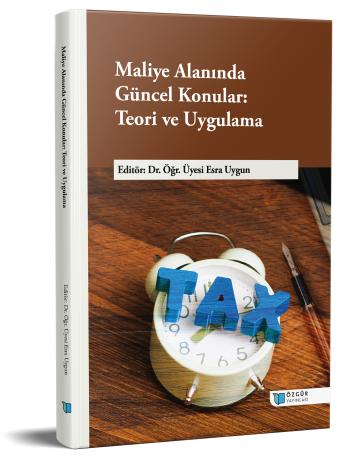
The Frugal Economy from the Perspective of Public Finance Science
Chapter from the book:
Uygun,
E.
(ed.)
2025.
Current Issues in Finance: Theory and Practice.
Synopsis
The frugal economy represents an economic paradigm that prioritizes the efficient, effective, and prudent utilization of resources. This approach embodies a mindset aimed at preventing waste while regulating production and consumption. In the realm of public finance, the concept of frugality denotes a framework through which the state seeks to manage its financial resources more efficiently and responsibly. The central objective is to avoid excessive public expenditure, minimize waste, and achieve optimal outcomes with the resources at hand. While frugality is often perceived as an individual behavioral trait, its application in public finance holds significant importance in terms of budgetary management, expenditure policies, and the optimal allocation of public resources. Public revenues must be deployed effectively; public spending should be guided by austerity policies; and strategies for efficient public expenditure must be developed. During periods of economic crisis, it is essential to implement austerity measures. Moreover, the role of frugal behavior in ensuring the sustainability of public debt must be carefully considered. To establish budgetary discipline and fiscal equilibrium, it is imperative to adopt institutions capable of upholding a frugal economic order. Key mechanisms include performance-based budgeting, measurable and transparent budget implementation, accountability, fiscal transparency, endogenous growth strategies, bottom-up budgeting approaches, medium-term expenditure frameworks, and planning grounded in sound economic principles. Budgetary governance, underpinned by these principles, should actively support sustainable development. In a frugal economic system, the overarching goal is to safeguard the economic interests of all individuals and to ensure the equitable distribution of resources. The efficient allocation of social expenditures and welfare policies is also a critical component of this framework. Frugality aids governments in accurately prioritizing public spending and enhancing the quality and effectiveness of public services. The relationship between a frugal economy and fiscal decentralization is founded on numerous shared principles. Both frameworks aim to foster a sustainable mode of living, albeit at different levels and through different mechanisms. Whereas the frugal economy emphasizes individual responsibility, efficient resource use, and resistance to overconsumption, fiscal decentralization aims to achieve similar objectives at the local level within broader socio-economic contexts. Fiscal decentralization inherently supports the efficient and effective use of resources; thus, the frugal economy gains practical significance within a decentralized fiscal structure.

